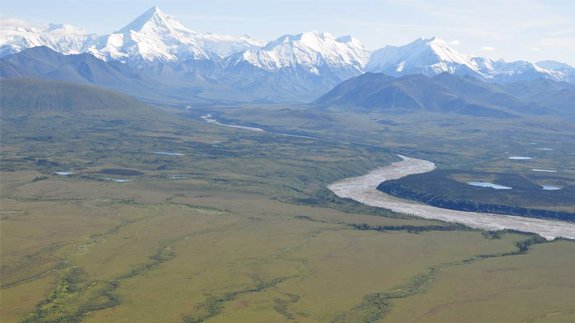NASA is going to examine the ecosystem impacts of climate change in the Arctic.
The Arctic-Boreal Vulnerability Experiment (ABoVE) will look at on-the-ground research in Alaska and northwestern Canada with data collected by airborne instruments, satellites and other agency programmes.
It will combine field work, airborne surveys, satellite data and computer modelling and will investigate the thawing of permafrost, wildfires and changes to wildlife habitats.
The scientists will investigate around 2.5 million square miles.
Jack Kaye, Associate Director for research in NASA’s Earth Science division said: “Boreal forests and tundra are critical for understanding the ecological impacts of Earth’s changing climate.
“These ecosystems hold a third of the carbon stored on land – in trees, shrubs and the frozen ground of the permafrost.
“That’s a lot of potential greenhouse gases in play. We need to better understand these ecosystems and how a warming climate will affect forests, wildlife and communities both regionally and globally.”
Last week NASA warned sea levels around the world have risen eight centimetres since 1992.
Earlier this year it said emissions could fuel ‘megadroughts’.





